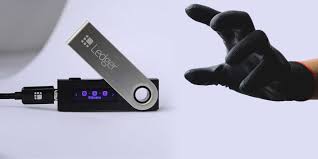One of the greatest challenges that Cryptocurrency holders face is security. Although exchanges are popular Crypto trading places, and provide storage services, there is always a risk of losing funds whenever such sites are hacked. Furthermore, authorities can also take them down, making it almost impossible to recover such funds. A hardware wallet is one of the safest places to store your coins.
A Cryptocurrency hardware wallet is a physical electronic device that is used to generate and store private keys. Since these devices are cold wallets (offline) they are regarded as being more secure than most of the other wallets, as they are not exposed to cybercriminals. These devices are designed to isolate the private keys from the risky and vulnerable online storages like computers.
Some Common Features Of Hardware Wallets
• They have physical buttons that are used for command.
• Many of them have screens that display transaction information.
• Transactions are executed on the hardware.
• They generate and store private keys on the device.
• For security purposes, they require the users to set a PIN code.
• They only support a few major coins.
When using a hardware wallet, it’s always advisable to ensure that no one has access to your private keys and recovery phrase. Losing these keys could lead to the loss of your funds. You should not keep these keys online as you may lose them in case of hacking. You can record them on a piece of paper or on a Cryptosteel. Although Cryptosteel is expensive, it is both water and fireproof thereby reducing the chances of losing your keys permanently.
Using a USB drive for storing your coins is popular among many people although it’s not safe. You can lose all your funds after losing the device. Malicious software could replace the receiver’s one. Furthermore, the private keys can be read or copied by any software. However, you can increase the security of USB drives by using devices that require a PIN code to access files.
Why Use A Hardware Wallet
Multicurrency hardware wallets enable the users to store different Cryptocurrencies in one device. This makes it easy for the users to manage their funds.
Hardware wallets are cold wallets making it difficult for hackers to target them. On the other hand, website and software wallets are always online making them a target for Cybercriminals.

Hardware wallets enable the users to send and receive funds at any time. However, to sending Cryptos from a paper wallet is more time-consuming as it must be imported to a hardware or software wallet first.
Hardware wallets give the owners control over their private and public keys. However, with most of the other wallets apart from paper wallets, the users rely on third parties. In the case of exchange wallets, in case the website shuts down for any reason, the users may lose their funds.
Hardware wallets have built-in encryption procedures that make them immune to computer malware and viruses. The private keys stored on the device are unrecognizable to the other unauthorized parties.
Hardware wallets enable the users to send Cryptocurrencies an unlimited number of times. This is unlike paper wallets as they are only spent once due to security issues.
Weaknesses Of Hardware Wallets
Despite being regarded to be among the safest places to store coins, there are chances of losing your coins from your hardware wallet. Some of the risks associated with these devices include:

Bugs: The security of hardware wallets, just like with any other system depends on the quality of its realization. Although it is rare with these wallets, a firmware bug could expose the stored coins to attackers.
Replacing receiver’s address: Using the safest wallet, cannot prevent someone from sending the coin to the wrong address. However, this problem can be solved by confirming a transaction through the 2 Factor Authentication method.
RNG: To generate a wallet’s private key, hardware wallets use RNG. The generation of random characters helps in making it more difficult for others to guess your private key. However, sometimes it’s difficult to validate the randomness of the RNG. Dealing with an RNG that’s not random and follows a given pattern can expose your wallet to hackers.
Cost: While you only need to download software wallets, hardware wallets cost money. This has kept many new Crypto traders from trying these awesome products. However, regardless of their cost, they provide users with a more secure and convenient way of storing Cryptocurrencies.
Examples Of Hardware Wallets
KeepKey: KeepKey is larger than both Ledger Nano S and TREZOR. Although this wallet is expensive, it has become popular because of its powerful security features. The wallet supports only seven Cryptocurrencies namely Dash, Ethereum, Testnet, Namecoin, Dogecoin, Litecoin, and Bitcoin.
Ledger Nano S: Since its launch in 2016, Ledger Nano S has proven to be a solid and reliable hardware wallet provider. The device is mainly popular because it is cheaper than most of the other hardware wallets. The wallet supports various Cryptocurrencies such as Ripple, Stratis, Litecoin, Ethereum, and Bitcoin among others.
TREZOR: TREZOR was launched in 2014 and was the first hardware wallet. It has grown to become one of the most popular wallets because of its good reputation. The device supports Bitcoin, Dash, Litecoin, Ethereum Classic, Ethereum (and all ERC 20 tokens) among others.
Final Thought
Although no single wallet can prevent you from all risks, buying a hardware wallet from a reputable seller can go a long way in ensuring your coins are stored in a secure way. The wallet’s official stores and authorized resellers are the safest places to purchase your device. Avoid second-hand devices at all costs. Furthermore, you should visit various online platforms regularly for any reported vulnerabilities.